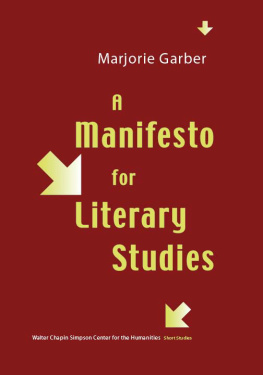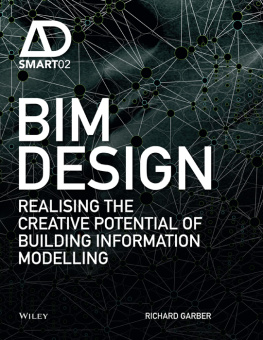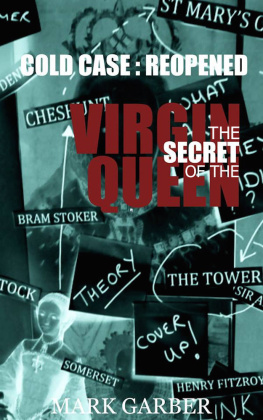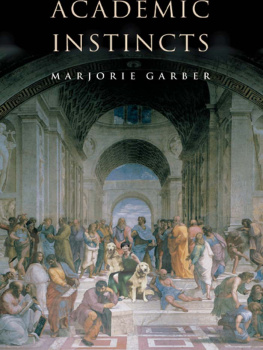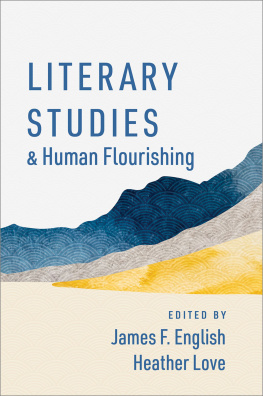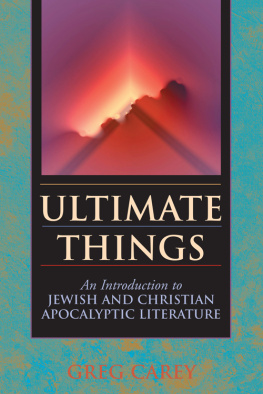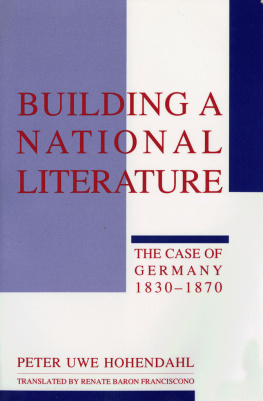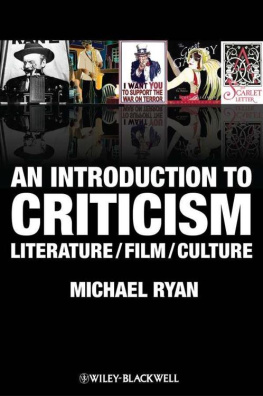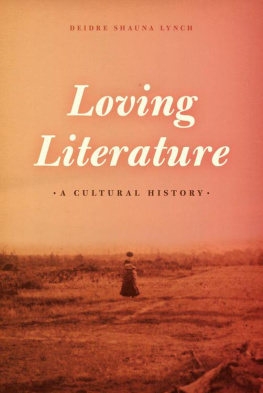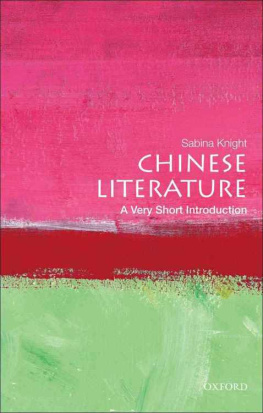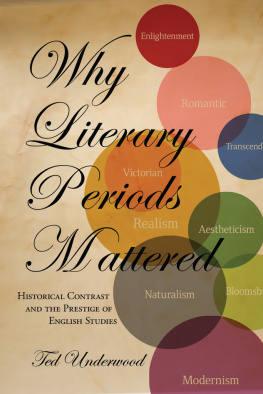Garber - A Manifesto for Literary Studies
Here you can read online Garber - A Manifesto for Literary Studies full text of the book (entire story) in english for free. Download pdf and epub, get meaning, cover and reviews about this ebook. City: Seattle, year: 2014, publisher: University of Washington Press, genre: Romance novel. Description of the work, (preface) as well as reviews are available. Best literature library LitArk.com created for fans of good reading and offers a wide selection of genres:
Romance novel
Science fiction
Adventure
Detective
Science
History
Home and family
Prose
Art
Politics
Computer
Non-fiction
Religion
Business
Children
Humor
Choose a favorite category and find really read worthwhile books. Enjoy immersion in the world of imagination, feel the emotions of the characters or learn something new for yourself, make an fascinating discovery.
- Book:A Manifesto for Literary Studies
- Author:
- Publisher:University of Washington Press
- Genre:
- Year:2014
- City:Seattle
- Rating:5 / 5
- Favourites:Add to favourites
- Your mark:
- 100
- 1
- 2
- 3
- 4
- 5
A Manifesto for Literary Studies: summary, description and annotation
We offer to read an annotation, description, summary or preface (depends on what the author of the book "A Manifesto for Literary Studies" wrote himself). If you haven't found the necessary information about the book — write in the comments, we will try to find it.
A Manifesto for Literary Studies — read online for free the complete book (whole text) full work
Below is the text of the book, divided by pages. System saving the place of the last page read, allows you to conveniently read the book "A Manifesto for Literary Studies" online for free, without having to search again every time where you left off. Put a bookmark, and you can go to the page where you finished reading at any time.
Font size:
Interval:
Bookmark:

Short Studies from the Walter Chapin Simpson Center for the Humanities
The Center for the Humanities at the University of Washington was established in 1987 with a mandate to encourage interdisciplinary activities in the humanities. Supported by the University Initiative Fund and endowed in 1997 in the name of Walter Chapin Simpson, the Center is dedicated to fostering innovative teaching and research in the humanities, and to stimulating exchange and debate on cultural and educational issues, both on and off the University of Washington campus. Its broader goal is to knit the academic and civic communities through a shared fostering of education and culture. The Simpson Center sponsors a wide range of activities, including interdisciplinary courses and collaborative research groups, public lectures, symposia, arts events, publications, and a fellowship program for University of Washington faculty and students.
The Art of the Ridiculous Sublime:
On David Lynch's Lost Highway
Slavoj iek
Semiotic Flesh:
Information and the Human Body
Edited by Phillip Thurtle and Robert Mitchell
A Manifesto for Literary Studies
Marjorie Garber
Copyright 2003 by the Walter Chapin Simpson Center for the Humanities
Library of Congress Cataloging-in-Publication Data
Garber, Marjorie B.
A manifesto for literary studies / Marjorie Garber.
p.cm.(Short studies from the Walter Chapin Simpson Center for the Humanities)
Includes bibliographical references.
ISBN 0-295-98344-2 (alk. paper)
1. English literatureHistory and criticismTheory, etc. 2. American literatureHistory and criticismTheory, etc. 3. LiteratureHistory and criticismTheory, etc. I. Title. II. Series.
PR21.G36 2003 820.9dc22 2003062196
Excerpt from Burnt Norton in Four Quartets, by T. S. Eliot, copyright 1936 by Harcourt, Inc., and renewed 1964 by T. S. Eliot. Reprinted by permission of the publisher.
The Coming of Wisdom with Time, by William Butler Yeats, from The Collected Works of W. B. Yeats, Volume 1: The Poems, Revised, edited by Richard J. Finneran (New York: Scribner, 1997). Reprinted with the permission of Scribner, an imprint of Simon & Schuster Adult Publishing Group.
Printed in the United States of America
Distributed by the University of Washington Press
PO Box 50096
Seattle, Washington 981455096
www.washington.edu/uwpress
Series Editor
Kathleen Woodward
Series Designer
Christopher Ozubko
ISBN 978-0-295-80427-9 (electronic)
The paper used in this publication meets the minimum requirements of American National Standard for Information SciencesPermanence of Paper for Printed Library Materials, ANSI Z39.481984.
All rights reserved. No part of this publication may be reproduced or transmitted in any form or by any means, electronic or mechanical, including photocopying, recording, or any information storage or retrieval system, without permission in writing from the publisher.
The title of this volume risks being regarded as vieux jeu on the one hand, and aggrandizing on the other. Why does something as staid as literary studies need a manifesto? And why mobilize that quintessentially political form of the last century, the ardent advocacy of the manifesto, in support of a discipline well established within the academy?
The fortunes of literary studies have gone up and down during the twentieth and twenty-first centuries with the same volatility as the stock market. And like the stock market, the market in literary studies can be charted with confidence only with the benefit of hindsight.
English studies held the comfortable middle ground of the humanities in U.S. and Anglophile/Anglophone universities through the middle part of the twentieth century. The combined heritage of belletrism and the little magazines imparted a certain gloss of creativity and artiness to the practice of reading and writing about poems, novels, plays, and what was then often described as intellectual proseworks like Robert Burton's Anatomy of Melancholy, for example, or Samuel Johnson's Lives of the Poets. Practices like textual explication, often cognate with, or imported from, the study of religious texts, were partnered with literary history, thematic criticism, and the study of images, tropes, and what was called literary influencethe indebtedness and echoes of one literary work to anotherwhether such influence was deemed serene or anxious. Intertextuality, a term borrowed from French, offered an adjustment to the question of influence by seeing it as a two-way street, and also by emphasizing the agency of the text over that of the controlling author. Texts could converse with one another whether or not the author was consciously speakingor listening. The conscious/unconscious borderline was a natural topic for scholars steeped in the heritage of romanticism, whether or not they acknowledged the pervasive influence of Sigmund Freud's writings on the development of twentieth-century art and culture.
An infusion of exciting and provocative theoretical writing, again largely continental in origin, coming to the United States from France, Germany, and the U.K., made literary studiesor, more properly then, literary theorythe star, and also in some views the bad child, of humanistic work in the 1970s and 1980s. Intellectual practices such as semiotics, phenomenology, and structuralism changed the way critics and scholars read literature, and literature itself changed with the onset of lively debates about the literary canon, cultural inclusiveness, and popular culture. Whether described under the heading of poststructuralism, deconstruction, or postmodernity, the work of European writers like Roland Barthes, Pierre Bourdieu,Raymond Williams, Jacques Derrida, Jacques Lacan, and Michel Foucault shifted attention to issues of text and agency.
A phrase like the linguistic turn (later transformed into the cultural turn) signaled a high-water mark for the prestige of this particular mode of literariness in the late twentieth century. As Lynn Hunt and Victoria Bonnell note in their introduction to Beyond the Cultural Turn (1999), the publication of two key works in 1973Hayden White's Metahistory: The Historical Imagination in Nineteenth-Century Europe and Clifford Geertz's The Interpretation of Cultures: Selected Essaysestablished the importance of techniques derived from literary studies for the disciplines of history and cultural anthropology.
White introduced his study with a strong claim about the relationship of history to language that established the first as dependent upon the second: In this theory I treat the historical work as what it most manifestly is: a verbal structure in the form of a narrative prose discourse. Histories, he maintained, contain a deep structural content which is generally poetic, and specifically linguistic, in nature, and which serves as the precritically accepted paradigm of what a distinctively historical explanation should be. His table of contents was explicitly indebted to Frye's structuralist account of genre, with chapters such as Michelet: Historical Realism as Romance, Ranke: Historical Realism as Comedy, Tocqueville: Historical Realism as Tragedy, and Burckhardt: Historical Realism as Satire.
The culture of a people is an ensemble of texts, wrote Geertz in his celebrated essay on the Balinese cockfight:
Such an extension of the notion of a text beyond written material, and even beyond verbal, is, though metaphorical, not of course, all that novel.
Font size:
Interval:
Bookmark:
Similar books «A Manifesto for Literary Studies»
Look at similar books to A Manifesto for Literary Studies. We have selected literature similar in name and meaning in the hope of providing readers with more options to find new, interesting, not yet read works.
Discussion, reviews of the book A Manifesto for Literary Studies and just readers' own opinions. Leave your comments, write what you think about the work, its meaning or the main characters. Specify what exactly you liked and what you didn't like, and why you think so.

